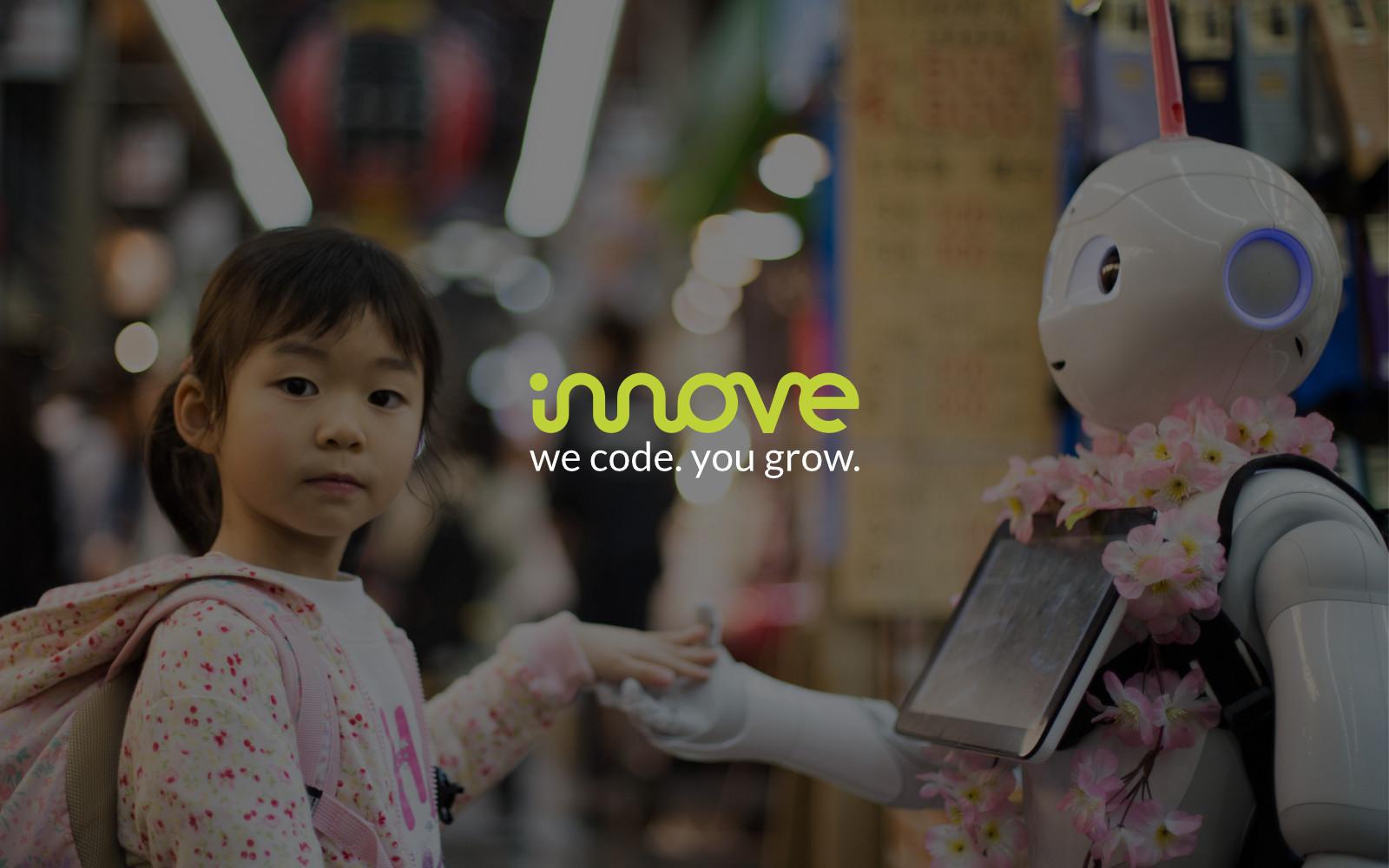Smart factory software: the digitization of the factory
4 min read

In the industry, the digital revolution has been going on for many years: today we talk about smart factories to indicate those companies that, having adopted over the years "intelligent" automation systems, manage to develop whole processes without the help of man .
Smart factory software becomes one of the areas of application development where companies like Innove develop software to manage, monitor or dialogue with the different machinery.
Digital technologies and robotics are key points of these systems and, soon enough, the adoption of artificial intelligence will increase the efficiency and autonomy of these systems.
Man's control over systems (however automated and intelligent) is today, and will be for a long time, appropriate and necessary. Maintaining efficiency, managing exceptions, controlling results, managing priorities, re-allocating resources requires vision and decisions that often fall outside of cost / time-optimized management models.
In the evolution of the company and in its transition from traditional to smart, the path is long and complex: the analysis of company processes and the adoption of the correct software are some of the strategic steps of this evolution. The market offers "general" software and industry software: there are ERPs (Enterprise Resource Planners) that are worth - net of lots configurations - for any market and ERP specific for each market niche; in the same way for schedulers, MRP (Material Resource Planner) and so for every application.
In the smart factory, information control is crucial and, in companies where data is dispersed in software that are not designed to work together, integration is another of the points to which particular attention should be paid. The lack of all this hinds the birth of an efficient digital organization.
In this context, equipping the people who have the responsibility to control the "factory" processes of an adequate smart factory software is an unavoidable choice. When the manager is at the desk he has the possibility to access every software resource to verify and intervene; often, these figures are at the factory or in warehouses or laboratories to supervise the operation and to assist the resources that are of reference for those areas: it is at these times that a mobile app can make the difference.
The mobile app must interact with the different systems, must be able to collect information from multiple software and is therefore hardly a "standard" app or linked to a single program.
The functionalities required for these apps vary from time to time, for example:
The choice of a reliable partner that has development skills, but with an experience also as a system integrator in the production field (smart factory software) is an obligatory choice to ensure the effectiveness and efficiency of the app in the company.
Smart factory software becomes one of the areas of application development where companies like Innove develop software to manage, monitor or dialogue with the different machinery.
Digital technologies and robotics are key points of these systems and, soon enough, the adoption of artificial intelligence will increase the efficiency and autonomy of these systems.
Man's control over systems (however automated and intelligent) is today, and will be for a long time, appropriate and necessary. Maintaining efficiency, managing exceptions, controlling results, managing priorities, re-allocating resources requires vision and decisions that often fall outside of cost / time-optimized management models.
In the evolution of the company and in its transition from traditional to smart, the path is long and complex: the analysis of company processes and the adoption of the correct software are some of the strategic steps of this evolution. The market offers "general" software and industry software: there are ERPs (Enterprise Resource Planners) that are worth - net of lots configurations - for any market and ERP specific for each market niche; in the same way for schedulers, MRP (Material Resource Planner) and so for every application.
In the smart factory, information control is crucial and, in companies where data is dispersed in software that are not designed to work together, integration is another of the points to which particular attention should be paid. The lack of all this hinds the birth of an efficient digital organization.
In this context, equipping the people who have the responsibility to control the "factory" processes of an adequate smart factory software is an unavoidable choice. When the manager is at the desk he has the possibility to access every software resource to verify and intervene; often, these figures are at the factory or in warehouses or laboratories to supervise the operation and to assist the resources that are of reference for those areas: it is at these times that a mobile app can make the difference.
The mobile app must interact with the different systems, must be able to collect information from multiple software and is therefore hardly a "standard" app or linked to a single program.
The functionalities required for these apps vary from time to time, for example:
- alarm notifications for downtime to those for deviations of the indicators from the ranges considered "normal"
- visualization of the status of the machinery (stationary, setup, activity, maintenance, ...)
- progress of production processes
- quantities available in the previous phases (to be processed) and subsequent (already worked)
- ...
The choice of a reliable partner that has development skills, but with an experience also as a system integrator in the production field (smart factory software) is an obligatory choice to ensure the effectiveness and efficiency of the app in the company.
Within the same category
Website response times
4 min read
